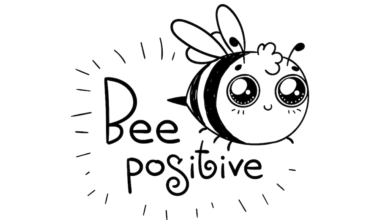Meditation is considered a type of mental exercise. Its purpose is to focus and redirect a person’s thoughts. In some cases, it is used to raise a person’s awareness, reduce daily fatigue, or increase concentration. It is also used to treat sleep and behavioral disorders as well as to improve a person’s mood. In this article, we will learn about eleven incredible benefits of meditation on mental health.
Table of Contents
Benefits of Meditation on Mental Health:
1. Reduces stress
Stress is a killer and anything that can be done to reduce it must be on your list, and meditation has been scientifically proven to reduce stress. In fact, the more stressful your life is, the more beneficial meditation is.
Even, mindfulness meditation benefits are now being examined scientifically and have been found to be a key element in stress reduction. And remember what I said about it being weird? Well, forget it. Not only do many celebrities meditate but so do the NFL, the army, and even politicians.
2. Relieves anxiety
Having anxiety attacks is not a great way to go through life. Unfortunately, there is not a great deal that can be done to lessen them. Sure, there are meds but who wants to take drugs all the time? Meditation is a much healthier option.
And if you want to go all-in, you can try yoga. A recent study showed that people who practice yoga had less anxiety than people who only meditated, almost certainly because of the extra physical activity involved.
3. Promotes mental health
There are many studies already has proven that meditation benefits for the brain are amazing. When you decrease stress and relieve anxiety, your mental health improves.
Okay, that may not be a shocking revelation. However, the benefits of meditation are exponential. That means that the more your mental health improves, the more it is going to improve.
As your stress levels decrease, you will feel better about yourself. And not just that. People who do meditation tend to be more positive in their thinking and have a more optimistic outlook in general.
4. Increases happiness
Of course, all the good stuff above means that people who know the benefits of meditation are generally happier. That may not be very surprising either but the fact is that less stress and anxiety mean better health which means more happiness.
And with more happiness comes more positive thinking and more optimism. In fact, it becomes a self-fulfilling prophecy, as it were. More happiness means more positivity and optimism. More positivity and optimism means more happiness and so on.
5. Improves productivity
The great thing about all of this positivity, optimism, and happiness is that it makes you are a far more productive person at work. The problem with stress, and maybe anxiety more so, is that both those negative emotions mean more fear.
But, regular meditation helps us to create a positive mentality by reducing stress and anxiety which can increase productivity in the workplace too. Fear stops us from taking action.
In fact, fear stops us from doing most things. The benefits of meditation mean that the feelings of fear are greatly diminished, allowing us to get on with doing more in our lives.
Related: How Being Positive Can Increase Productivity in Workplace
6. Improves sleep
One of the most positive benefits of meditation is that it improves sleep, which is a benefit in so many other ways. In fact, here is a good moment to point out what you have probably already noticed. Everything is linked to everything else.
Decreasing one negative aspect of your life increases another positive aspect, and sleeping is no different. Sleeping well means getting up early and starting off your day properly, which benefits you in so many other ways, such as reducing anxiety and stress.
7. Increases concentration
Not all the benefits of meditation are physical, some of them are psychological. For instance, in our brains, there is something called a pre-frontal cortex. Now, where it is and what it does is not overly important. However, one of the responsibilities of the pre-frontal cortex is concentration.
By meditating every day, you are working out your pre-frontal cortex, which means you are going to be able to concentrate not only better but also for longer periods of time. If nothing else, that should help you when you’re working. Also, the benefits of meditation for students are great; because regular meditation can improve memory.
8. Improves sociability
This is another spiritual benefit of meditation that is more psychological than physical, but they all count. With all these feelings of positivity and optimism, and no longer feeling so anxious and stressful, there are many knock-on benefits as well.
Feeling better about yourself will make you want to meet other people, mainly to tell them how much better you feel about yourself. And that’s great. In fact, the more people you tell, the better you’ll feel and you never know, you may even affect someone in a beneficial way as well.
9. Improve kindness
One type of meditation may even increase your feelings of brotherly and sisterly feelings towards your fellow man. There is a type of meditation called Metta meditation which teaches kindness. The idea is that you learn to be kind to yourself first.
Then, when you have learned how to be kind to yourself, you can learn to be kind to others. That’s the theory and studies have shown that it really works. Using Metta meditation relieves anxiety, helps manage anger, and even reduces matrimonial fighting.
10. Stops memory loss
You’ll have to put this is the ‘maybe’ column but one of the benefits of meditation may be that as you get older, your memory will not let you down. Studies have shown that some types of meditation can help with memory tasks in old age. There are also studies that suggest that attention spans and memory loss can be improved in the elderly.
There are even more studies that suggest that meditation partially helps the memories with people suffering from dementia. As I said though, the jury is definitely out on many of these studies but no matter what, meditation will benefit you. And if it helps you stay more mentally active when you’re older, that’s even better.
10. Decreases blood pressure
This benefit of meditation is more physical than mental. However, it is also related to mental health. Meditation benefits you in two ways when it comes to blood pressure.
Firstly, meditation lower blood pressure which means there is less pressure on the arteries and the heart, which is excellent from a general health point of view.
However, as we already know, one of the biggest benefits of meditation is stress reduction. That also has many health benefits as too much stress causes a lack of sleep, depression, and increased blood pressure.
So, there you have it, One of the best benefits of meditation is that there are so many different ways that it can help you, both physically and psychologically. And I forgot to mention one other major benefit of meditation; you can do it anywhere.
So, for enjoying the psychological and physical benefits of meditation, everyone should spend a few minutes a day in meditation.
Related: 10 Ways to Overcome Low Self-Esteem
Meditation Tips for Beginners
In this guide, you will find practical tips on how to get started with your meditation. These tips are meant to help you get started on meditation and keep it going once you have started. You do not need to use all at once, you can bookmark and come back to this article and try several times.
1. Why meditate?
What do you intend for your meditation? Do you need to stress down or get more clarity and increase your concentration? Whatever the purpose, why you want to meditate, it is good to have one.
2. Don’t get stuck in the way – Just do it!
Everyone can learn to meditate, do not worry that you need the best meditation pillow and the perfect moment, it may be delayed until it comes so just try to find somewhere where you can sit undisturbed and comfortable for a few minutes.
3. Do it right in the morning
It is usually easier in the morning to be able to focus and if you have done it already before your morning speeds up there is no risk of forgetting or not “have time for 10 minutes” You can set the alarm with the text time to meditate.
4. Two minutes
Just take two minutes and sit, concentrate on breathing, allow thoughts to pass and be in the moment, and breathe calmly. If you do well you can spend more time and soon you are up for 10 minutes a day. It is a good technique if you do not have access to any device for playing guided meditation.
5. Check out how you are doing
Once you sit down and start your meditation, How does the body feel? What about the mind? Stressed? Tired? Anxiety Whatever you bring into the session, it’s perfectly OK.
6. A loving attitude
Thoughts and feelings will come during your meditation. When they do, look at them with a friendly attitude, as friends, not as enemies.
7. Build up a habit
Build up a habit by meditating regularly. Often we postpone and find excuses for not exercising. If we feel that we have to clear many things before we meditate, then it is only a tactical delay.
Effort and continuity are required. At first, it may feel unnatural and squeezed into your busy schedule but soon it will be a natural part of your day.
8. Meditate on the go
If you commute regularly, then it can be an excellent opportunity to meditate. Using your phone and a pair of headphones, you can turn off the world for a few minutes and put on a guided meditation.
Don’t forget to turn the phone on silently so you don’t have to worry about unnecessary discrepancies from any mail or notifications.
9. Meditate at work
Fruit Break with Meditation – Clear your mind for a while during a busy day at work. Is there somewhere where you can be to yourself for 10 minutes? There might be a meeting room.
10. Take on a challenge
A good way to get routine and habit on your meditation is to begin a meditation challenge.
11. Meditate with the family
Do it with your girlfriend, boyfriend, your kids, or challenge a friend to take on the challenge.
12. Smile when you’re done
When you have finished your meditation session (even for a few minutes) be happy and smile and be glad you got a few minutes for self-service.
How Much Time Should you Spend on Meditation Each Day?
Meditating for 30-45 minutes per session is perfect for reconnecting with yourself. This may be too long for people who are just starting out, but over time it will be easier.
In the meantime, as little as ten minutes may suffice to notice some benefits. During the first few days, you should meditate for a few minutes and then increase the time as the days go on.
It is also recommended to find the right meditation technique that is best for you.
Different types of Meditation
- Guided meditation
- Primordial sound meditation
- Mindfulness
- Vipassana
- Chakra meditation
- OSHO dynamic meditation
- Kundalini
- Tonglen
- Metta
- Ishtameditation
- Transcendental meditation
- Zazen
Closing tips
For some people, it is best to meditate in absolute silence, but others prefer quiet and relaxing music. Some even like to do it when they walk.





